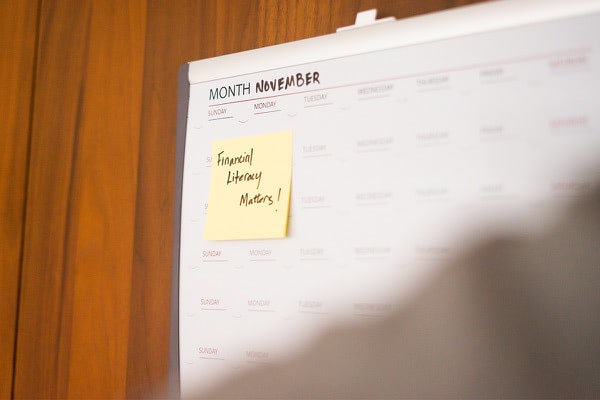Dan Ahlstrand and Clinton Wilkins are joined by Mario Cloutier of Manulife to discuss the importance of risk insurance for home additions, creditor insurance, and the importance of financial literacy.

Here’s why Financial Literacy Month matters
Financial Literacy Month is here! For many Canadians, November is the perfect month to do a review of their finances and refresh themselves on what financial literacy means. The holidays are approaching and a new year is on its way, so there’s no better time to make sure you have a good handle on your money. In this post, we’ll go into more detail about why Financial Literacy Month matters to you as a Canadian, and how you can go about improving your own literacy. Let’s dive in!
What is Financial Literacy Month?
In 2011, the Financial Consumer Agency of Canada (FCAC) introduced Financial Literacy Month. Every November is Financial Literacy Month, and the FCAC’s goal is to improve Canadians’ financial knowledge and well-being. With this in mind, they work with organizations and businesses in the public and private sectors to provide Canadians with resources and information to help them with their finances. Financial Literacy Month is especially important as COVID-19 still lingers, given that many Canadians have lost or switched jobs, and had their savings impacted. As this is the second pandemic year of Financial Literacy Month, FCAC is bound to have tons of information for Canadians on handling their personal finances and debt.
Why is it important for you?
If you’re a home owner, have debt, pay rent, or have any kind of expenses or assets at all, Financial Literacy Month matters to you. This means most people would benefit from understanding their finances! About 70 per cent of Canadians have debt, according to Statistics Canada, which is one of the highest rates in the world. Unfortunately, FCAC says that Canadians don’t tend to have the best savings or plans for managing their debt. This combination can be dangerous, so it’s essential to stay on top of your finances to avoid making any incidents of debt worse.
Stay on top of your finances!
There’s endless ways to monitor your finances, and continue to learn about how to manage your money. From books to social media accounts, here are some suggestions for places you can seek additional information.
Listen to podcasts
There are podcasts for every subject imaginable, including finances! If you like learning on the go, or you don’t love reading, this could be an ideal option for you. Some good financial podcasts include Real Money Talk, where the hosts interview experts about common money issues facing millennials, and Simple Money, a quick-hit podcast about understanding the economy. In addition to podcasts, Mortgage 101 is a monthly radio show on CityNews 95.7 where Clinton joins Todd Veinotte to discuss all things mortgages. Check out all the episodes here!
Attend events and webinars
Live events can be a great way to gather real-time information while interacting with experts. These are generally more hands-on, as they involve audience participation and you get to learn in the moment. Some great webinars come from My Money Coach, with topics ranging from saving on household costs to retiring without debt.
Follow social media accounts
Social media can be a great resource to connect with people and organizations who post valuable information about finances, such as the Canadian Real Estate Association (CREA), the Bank of Canada, banking institutions, real estate companies, or individual professionals you may know. Between LinkedIn, Facebook, Instagram and Twitter, you can find lots of accounts that post information, articles, blogs, and everything in between! Plus, you can learn about topics you probably never even thought were relevant to you.
Read financial literature
If you love reading books or articles, there’s tons of financial information out there for you. Pretty much any account you can find on social media also has a website with blogs and helpful articles, but you can also turn to books. A quick Google search for “personal finance books” will turn up thousands of results and options for you. Some good examples are The Wealthy Barber, The Millionaire Next Door, and Worry-Free Money: The Guilt-Free Approach to Managing Your Money and Your Life.
Contact a professional
If you’re hoping to get involved in real estate and don’t think your financial literacy is quite up to scratch, get in touch with a broker for help understanding the home buying or mortgage process. We can guide you through everything you need to know while ensuring you have an understanding of your finances.
Financial Literacy Month matters to everyone and has some kind of impact on all of our lives. Even if finances and the market aren’t your top interests, it never hurts to improve your understanding of your own money.
If you have questions about Financial Literacy Month, get in touch with us at Clinton Wilkins Mortgage Team! You can call us at (902) 482-2770 or contact us here.


